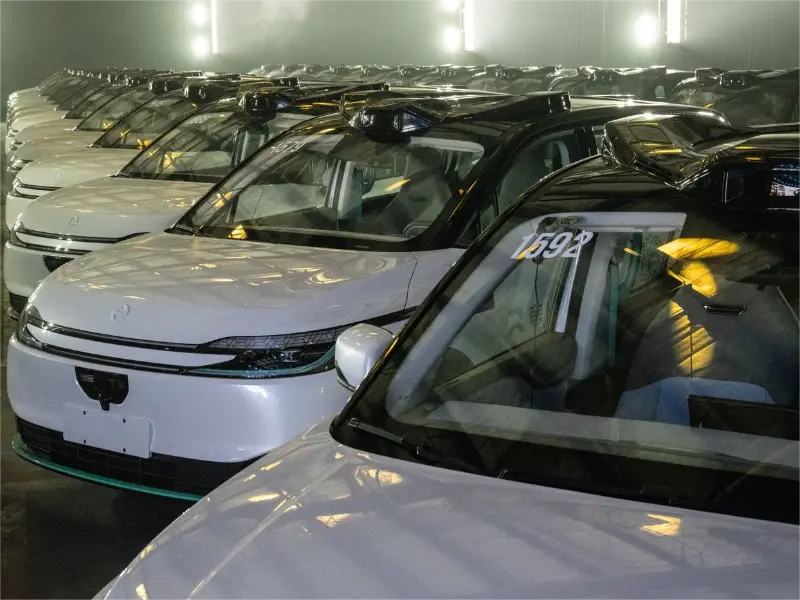- Baidu’s robotaxi ambitions led to scepticism as the stock rallied briefly before falling back, with the target price falling to a record low.
- Apollo Go’s expansion into more Chinese cities was a bold move, but financial sustainability and market acceptance remain uncertain.
OUR TAKE
Baidu faces scepticism as it aggressively expands its Apollo Go robottaxi service in China, especially after expanding to Wuhan. Despite a temporary spike in share prices, the market remains cautious and quickly returned to previous levels, with analysts downgrading the company’s shares to a record low. This reflects concerns about the short-term profitability and strategic viability of Baidu’s autonomous driving venture. The ambitious move to become a pioneer in a highly competitive, technology-driven market faces hurdles such as evolving regulations, investment and consumer reluctance to embrace autonomous technology. To overcome these challenges, Baidu must not only improve its technological capabilities, but also effectively manage investor expectations and regulatory relationships. This balance between innovation, market strategy and compliance will be critical for Baidu as it seeks to redefine transportation norms in one of the world’s largest markets.
–Heidi Luo, BTW reporter
What happened
Baidu, the leading Chinese internet search company, has seen its shares struggle to sustain initial gains after announcing the expansion of its fully autonomous ride-hailing service, Apollo Go, in Wuhan. The initial excitement quickly faded as analysts reduced the 12-month average target price for Baidu’s stock to an all-time low, citing concerns about the future profitability of the robotaxi business and broader challenges in the AI sector.
This drop in valuation comes amid concerns about Baidu’s current weakness in advertising revenue and the uncertain future of autonomous driving regulations and consumer demand. Despite China’s rapid adoption of autonomous driving technology, financial analysts remain cautious.
“The share price has not priced in the potential of robot taxis. But to be honest, it shouldn’t be right now, because no one really knows how successful it will be, or what the government’s policy on the technology will be,” said Kai Wang, an analyst at Morningstar. “Mass commercialisation is still three to five years away.”
Also read: Robotaxis: Are autonomous taxis our future?
Also read: Baidu’s upgraded AI model hits 300 million users
Why it’s important
Founded in 2000, Baidu is a major Chinese technology company best known for its search engine. Through its Baidu Apollo division, founded in 2017, the company has expanded into a variety of high-tech fields, including artificial intelligence and autonomous driving.
A key initiative under Apollo is the Apollo Go robotaxi service, which allows users to hail autonomous vehicles through an app. This service is part of Baidu’s strategy to lead in AI and explore new business models in autonomous mobility, with active expansion in several Chinese cities.
Despite expanding the service beyond Wuhan and integrating with Tesla’s self-driving systems, Baidu faces stiff competition and macroeconomic challenges that could hinder near-term profitability.
“Robotaxis are unlikely to generate significant revenue or profit for Baidu in the next few years,” said Robert Lea of Bloomberg Intelligence. “Its earnings could show a double-digit sequential decline this year. The technology is risky and still immature, with development hurdles to overcome.”

